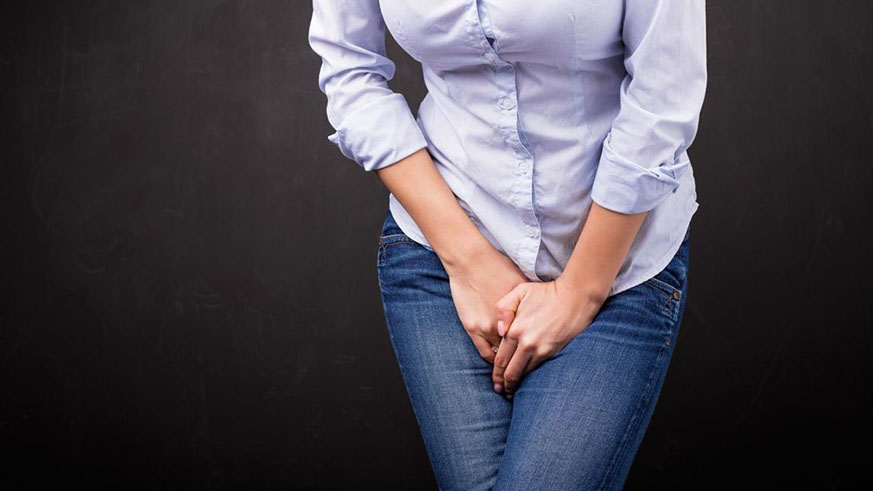

Urinary incontinence, also known as urinary leakage, is an embarrassing problem that affects millions of women. Although it is more common in older women, it can affect younger women as well. Urinary frequency, the need to run to the bathroom frequently, is another bothersome problem that can affect women.
There is no need to live with urine leakage or frequency because effective treatments are available.
The two most common types of urine leakage in women are urge and stress incontinence.
In people with urge incontinence, there is a sudden, overwhelming urge to urinate. You may leak urine on the way to the toilet. Common triggers of urge incontinence include unlocking the door when returning home, going out in the cold, turning on the faucet, or washing your hands.
Some people with urge incontinence also have to go to the bathroom frequently during the day and/or night. Frequency is defined as the need to urinate more often than other people (normal is considered to be more than eight times in 24 hours).
Stress incontinence occurs when the muscles and tissues around the urethra (where urine exits) do not stay closed properly when there is increased pressure ("stress”) in the abdomen, leading to urine leakage. As an example, coughing, sneezing, laughing, or running can cause stress incontinence. Stress incontinence is a common reason for incontinence in women, especially those who have had children. People with both stress and urge incontinence are said to have mixed incontinence.
In addition to stress and urge incontinence, there are other, less common types of urinary incontinence. The bladder may not empty completely, causing leakage when the bladder becomes overly full, known as overflow incontinence.
Urine incontinence may also be caused or worsened by medical problems, medications, and/or difficulty with thinking clearly.
Although leaking urine can be difficult to talk about, it is not normal at any adult age and is often treatable by exercises and/or medications. Talking about it with one’s healthcare provider is the first step in getting help for this problem that is affecting one’s life.
Simple tests may be done during an office visit to determine the type of leakage one is experiencing. This may include a cough test, when one is asked to cough while the doctor or nurse watches for urine leakage.
A urine test (urinalysis) is usually done to look for signs of infection or blood in the urine. Blood tests may be ordered to measure the kidney function.
Some steps that can help reduce urine leaks or urges include; cutting down foods or drinks that make one’s symptoms worse such as alcohol, caffeine, spicy or acidic foods, or artificial sweeteners which make some people urinate more often or cause sudden urges.
One should try not to drink too much right before bed to reduce urine leaks and urges. Constipation is also a common problem that makes it hard to have bowel movements, and this can make urge urine incontinence worse, hence, dealing with any existing constipation would help reduce on one’s urine incontinence.
Bladder retraining exercises help one’s bladder to hold more urine so one can urinate less often. During bladder retraining, one goes to the bathroom at scheduled times. For example, one might decide to go every hour even if they don’t feel the need to and if there’s need to go sooner, try to wait until the whole hour has passed. After one gets used to waiting one hour, they can try waiting longer between bathroom visits. Over time, one might be able to "retrain” their bladder to wait three or four hours between bathroom visits.
Relaxation can help manage the urge to go. When one gets an urge, stand still or sit down. Take a deep breath, squeeze your pelvic muscles, and let the "wave” of needing to go pass. Then walk slowly to the bathroom to urinate.
Pelvic muscle exercises strengthen the muscles that control the flow of urine. These exercises can help, but people often do them wrong, and one needs to be taught well how to do them by their doctor.
In case exercises don’t help in overcoming urine incontinence, the doctor might in addition prescribe some medicines to relax the bladder, or perform procedures that help to relax the bladder. The doctor who specialises in these conditions is referred to as a urologist.
Dr. Ian Shyaka Resident in Surgery, Rwanda Military Hospital,
iangashugi@gmail.com


